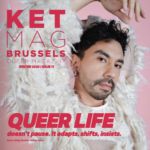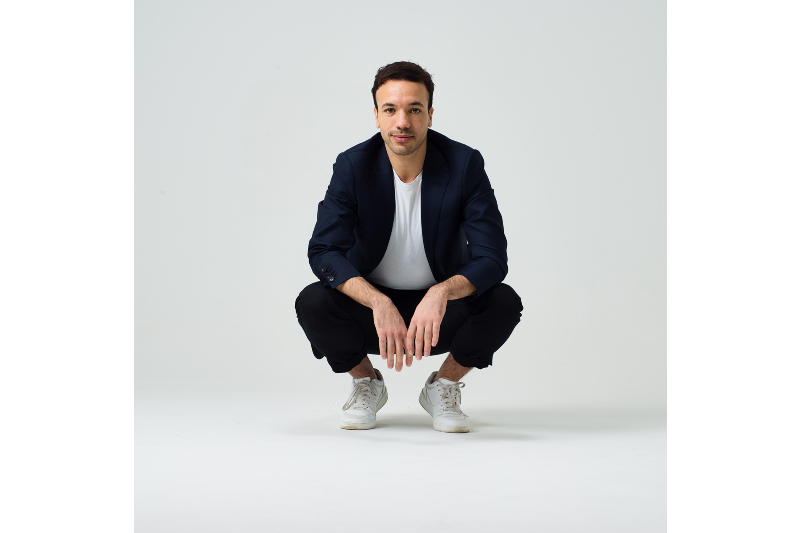Written by Hugo Mega
“Do you want to get married?” is a question I get asked a lot – I’m a gay man in a long-term, monogamous relationship.
I always respond to that question with a strong and resounding “YES!” but I always have to add the less enthusiastic caveat that I don’t know if I will actually ever get married. Inevitably, I have to explain why.
This is where my arguments have changed a lot recently. My initial go-to response was sassy: “Because my boyfriend doesn’t want to – because he doesn’t believe in marriage!” I usually conclude by stating dramatically that this is because: “He is a divorced man!” Cue telenovela gasp.
My partner’s previous experience of marriage is, objectively, a solid reason for the whole idea to be off the table. But it’s something that keeps coming up – every now and then, I put the idea of getting married back on the table – sort of like an ongoing joke but sometimes as a more meaningful conversation.
The marriage talk
When we first started unpacking ‘the marriage talk’, he asked me: “Why do you want to get married? What does it actually mean for you to be married to someone?” Initially, these seemed extremely easy questions to answer but, to my surprise, they opened a Pandora’s box of conflicting emotions.
I grew up wanting to get married. I used to believe that marriage was the ‘next step’ in any ‘serious’ relationship. It’s a somewhat cliché answer, I know!
It took some digging but I’ve realised that what was underpinning my marriage aspirations was my abandonment issues. I was projecting my insecurities – a belief that if things weren’t going well between us, being married would make us both work harder before giving up on our relationship. Getting married was a way of locking in my partner’s commitment to us – his commitment to me.
As I was trying to work through all of this, my partner – Mister Been-There-Done-That – pointed out that, given the current divorce rate, my strategy was flawed. A piece of paper contracting a marriage can easily be replaced by another one dissolving it.
Queer family dilemmas
In addition to wanting marriage, I also grew up wanting to be a father someday. I’d always understood that my options for fatherhood were quite limited. In my head, marriage was a requirement to even be able to consider adopting a child.
For me, it felt that marriage would officially recognise us as each other’s family. If we have kids or if something happens to one of us health-wise, we would be protected and legitimised. I felt that, as a gay couple, we needed that protection.
Plus, most of my family lives in a different country – a fear of dying alone, or a fear of not being able to be there for my partner’s last moments was another driving factor propelling my pursuit of marriage.
My partner pointed out that we’re not living in an episode of Grey’s Anatomy.
A bit of research confirmed that, in Belgium, marriage isn’t a prerequisite for queer people who are exploring options to become parents. Adoption is one pathway, but there are also provisions that support co-parenting or becoming foster-parents. Even in my worst-case scenarios, we wouldn’t have to be married for us to be able to be at each other’s side if there was a hospital emergency.
Working through some of my insecurities and fears helped me to tackle things that could have become unforeseen frustrations for me in our relationship, but I was running out of arguments as to why we should get married.
Heteronormativity versus Homonormativity
We talk a lot about heteronormativity – how heterosexual relationships are assumed to set the benchmark by which everyone else is measured – but my discussions around marriage brought me face-to-face with homonormativity.
Homonormativity is when it’s LGBTQIA+ people that are promoting the characteristics of heterosexual relationships as being the societal norms to which we should all be aspiring.
This is something that Brandon Andrew Robinson has written about – he’s an Assistant Professor of Gender and Sexuality Studies at the University of California. Robinson describes homonormativity as the endorsement of heterosexual domesticity, monogamy, marriage and reproduction habits and values – presenting these as more worthy of social acceptance.
You could argue that this strategy – advocating that LGBTQIA+ people share the same practices, values, and habits as cisgender straight people – has helped us secure rights such as marriage equality, adoption, and other social privileges. However, this narrative of sameness becomes another dividing factor in our queer communities, especially when co-opted by more conservative discourses that continue to try to dictate what is right or wrong in our relationships and our sex-lives.
Homonormativity contributes to and facilitates the marginalisation of LGBTQIA+ people that don’t conform to these ‘socially acceptable’ characteristics. It also seeks to alienate those who try to emancipate themselves from this heteronormative hegemony.
Participating in homonormativity is also revealing of one’s social privilege – whether inherited or strategically chosen. In our LGBTQIA+ communities, cisgender gay men and lesbian women have been those who have benefited the most from these homonormative social privileges.
The marriage conundrum
The definition of ‘queer’ – as appropriated by the LGBTQIA+ community – takes pride in not corresponding to norms and expectations of sexuality and gender as they apply to the cisgender and heterosexual majority.
As a feminist queer man and an activist promoting the deconstruction of patriarchal norms and expectations, I find myself somewhat cornered in regards to my desire to get married and my oblivious homonormativity. Do I really want to get married – is that my ‘true’ desire? – or am I just trying to fulfil a heteronormative societal script that dictates what and how ‘normal’ and adult relationships should be? What does this make of my queer identity? In this script, am I even queer (enough)?
Do I want to contribute to homonormativity? No – on the contrary! I want to advocate against it and try my best to emancipate myself and us all from such a system. But I also believe that queer marriages can be an act of resistance in a world that continuously tries to invisibilise us. Especially, considering that queer weddings are the best! Because if someone knows how to throw a party and have a good time, We do!
Put a ring on it?
It still seems a fairly remote possibility, but if my partner decided to propose to me, would I accept it? Yes! I’m a shamelessly romantic man. Blame my Moon in Cancer, if that means anything to you!
Of course, I could propose to him – and I might do that. But having these discussions, trying to persuade him and – in the process – working through my own fears and insecurities – I’m now looking at marriage with a different awareness.
I’m now more aware of what has been emotionally informing me. I’m more aware of how my privilege and my values influence my views on different relationship formats.
If I get married, I would embrace more openly and consciously a queer marriage – queer in the sense that having different values from the expected norm is what would hopefully make our marriage a stronger one.
Ultimately, if we don’t get married at all, I will be at peace with it. I will still be a shamelessly romantic man in an awesomely queer relationship.
Hugo Mega is a transformative coach, imagery therapist and activist for healing, equality and gender justice. He is based in Brussels. For the past 10 years, he has questioned, researched, and explored artistically and therapeutically on themes of masculinity and femininity.
In 2019, he started the project “Male Identities”, a space for those identifying with being a man, to question patriarchy and privilege from a feminist perspective. Since, he’s been facilitating group conversations and workshops about feminism, deconstruction of masculinity and patriarchal conditioning to promote healthier relations to masculinity. He is currently researching and creating more inclusive and conscious approaches to personal development supported by feminist theory.
Hugo is currently a faculty member, a program director and coach trainer at Coach Masters Academy.
Follow him on Instagram @hugomegacoach.
You may also like
-

The New KET Is Out: Queer Brussels Keeps Moving
KET Magazine Issue 11 is out now and available in LGBTQIA+ safe spaces across Brussels,
-

Brussels Art Guide 2026: Mapping a Vibrant Contemporary Scene
Brussels is once again putting its contemporary art scene in the spotlight with the new
-

What is Sex-Positive Belgium?
Sex-Positive Belgium is a growing, real-life community of open-minded people who embrace a sex-positive philosophy. It welcomes
-

“Bi+ Equal: Europe’s First Platform Uniting Bi+ Communities Across Borders”
Bi+ Equal is the first-ever bi+ structure at the European level, a new platform created
-

“From Borders to Belonging: How Arc-en-Ciel International Guides LGBTQIA+ Migrants to Safety and Community”
Arc-en-Ciel International Rainbow (AIR) is an online platform created for and with LGBTQIA+ migrants, refugees

